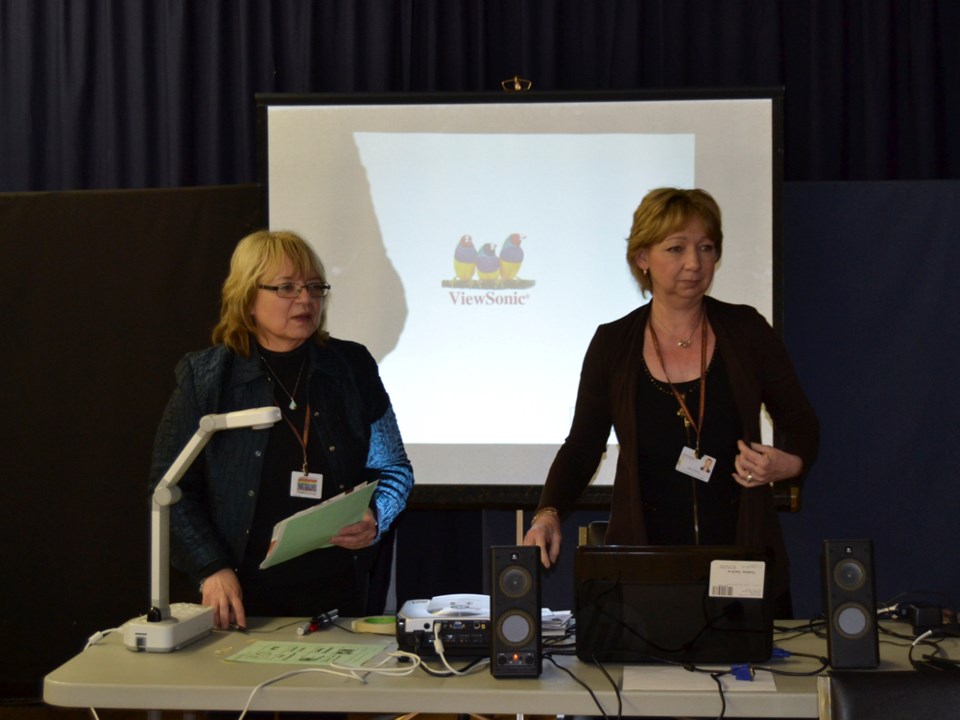Members of the Canadian Federation of University Women-Estevan Club and guests gathered for a discussion about health care at an event the club held on Saturday. The event was a forum for people to discuss how to navigate the health-care system, as an advocate for oneself or for someone else, to get optimal care.
The event took place at the Estevan branch of the Royal Canadian Legion, and featured guests Jacquie Holzmann, a director of integrated primary health services from the Sunrise Health Region, and Cheryl Neibrandt, someone who shared a personal story of how she used advocacy to help her husband, Brian.
They spoke of how important advocacy is, within the health-care system, for proper understanding between doctors and patients – something that is necessary to promote the best possible treatment, and avoid the dangers of miscommunication.
Neibrandt spoke at length about her experiences, getting a proper diagnosis and treatment for a rare and debilitating spinal condition her husband suffered over the course of five years. Her experience involved a great deal of research and consultation with a number different health-care professionals, including the family neurologist. Neibrandt also spoke about the consequences of dealing with her husband’s symptoms, and the ripple effect it created for their family.
In her account, Neibrandt referenced the amount of effort she and her husband put into figuring out how to treat his condition, working with specialists, describing an assortment of symptoms, advocating for their concerns and, eventually, travelling as far as a specialized clinic in the U.S. to get Brian the surgery he needed.
“The brain stem issues were gone and it was quite amazing. I came home with a new husband. After five years of struggle, we told the specialist we needed to see about all the little issues,” said Neidbrandt, describing how things came together and they found the solution, after pushing to find a specialist who could properly identify the problem, which turned out to be a spinal fluid leak, and the necessary surgical solution. “It was a happy ending, and we got our lives back.”
Holzmann said, “Brian and Cheryl never gave up, and never would have had the option to get to the right people if they did. Health care isn’t perfect. It’s a complex system.”
She added, “You have to be part of it and drive your own ship, so to speak. If advice doesn’t feel right, make sure you share that with your care providers.”
Holzmann stressed the importance of communication, and asking questions and doing research to get to the bottom of health-care matters.
The topic of advocacy on behalf of others, particularly for people in a state of pain and fear was visited by Dr. P. Fourie with Sunrise Health Region. Fourie said that pain and fear can make communication for someone trying to get medical help difficult, and that an advocate can help bridge gaps in communication, sometimes by just being there for support, or for adding the details a person in an anxious or anguished state can forget. Fourie encouraged everyone to be an advocate whenever called upon to do so, emphasizing how valuable such a role is within the health-care system.
Later in the evening, Janice Giroux, a nursing administration director and Mary Anne Veroba, vice-president of community health, both with Sun Country Health region, spoke on how patient advocacy fits into the programming available through Sun Country; this programming includes a patient advisory group, and the many health campaigns the region carries out.




